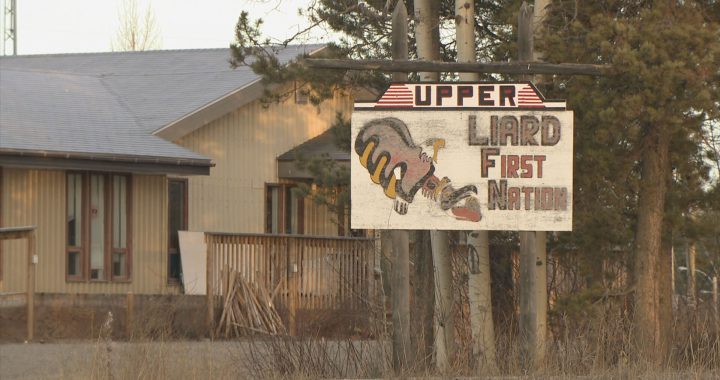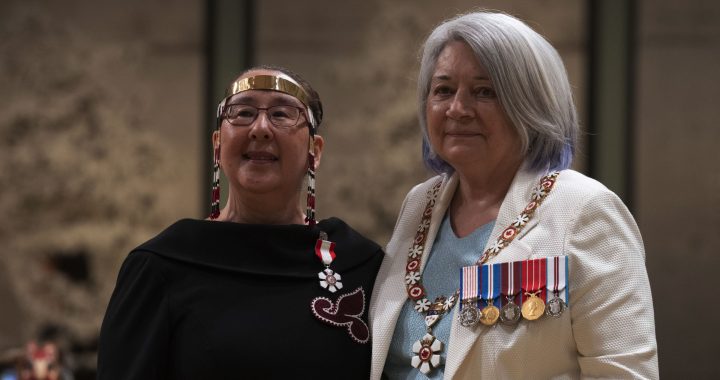Canadian health officials are showing concern over the possibility of a third wave because of the way the new COVID-19 variant is ravaging the United Kingdom.
The B-117 COVID-19 mutation is the top variant strain in Canada and accounts for 99 per cent of cases in the U.K.
To date there have been over 3,600 cases reported in this country.
“There are many more underneath these already sequenced viruses that we know is actually occurring in Canada,” explained Canada’s Chief Health Officer Dr. Theresa Tam.
“So the 3,600 is kind of the tip of the iceberg and there are many more cases with those mutations,” she said.
From what they’re learning worldwide, health officials now know that the B-117 variant spreads quicker and results in more severe outcomes like hospitalizations and deaths.
With COVID-19 cases on the rise in Canada, over 3,200 since last week, the possibility of a third wave is concerning they say.
Particularly troubling are the rising cases in Ontario where Thunder Bay is an area of great worry.
Tam said any place can become a hot spot and the key is to act fast to address the crisis. She called this an inflection point for Ontario and warns variants will most likely be the driving force and an, “accelerant to a potential resurgence.”
It has been reported that up to 40 per cent of COVID-19 cases in Ontario may now be due to the variants of concern.
“I do believe this is a very delicate point,” Tam warned adding that if public health cannot keep up with the rising cases and more hospitalizations result, then Ontario will have to adjust their public health measures to battle the surge.
Dr. Howard Njoo, Canada’s deputy chief public health officer said the variants, particularly in Ontario, are continuing to become a greater portion of COVID-19 cases nationwide.
“What Ontarians do now matters because obviously we’ll see the consequences in a couple of weeks,” Njoo told reporters Tuesday.
Tam said Ontario is not alone and there are other areas of the country where she is beginning to see increased infections. She partially blames the March/Spring break periods where people tend to lower their guards and take more risks.
Tam warns that although vaccinations are underway the threat of the new COVID variants means we still have a long way to go in this current pandemic.
For the long run the government of Canada said they are furthering their bio-manufacturing strategy and their quest for a Canada-made vaccine.
Minister of Innovation, Science and Industry, Francois-Philippe Champagne, announced Medicago has entered final stages of their phase 3 testing stage. This will involve over 30,000 participants in 10 countries including Canada.
Canada has also made three new investments towards domestic vaccine and therapeutics manufacturing.
To date, the federal government has invested approximately $1 billion in the development of vaccines and pharmaceuticals, as well as bio manufacturing capacity.
Through the Strategic Innovation Fund, Canada is looking to strengthen drug development to meet the county’s future needs, should the pandemic lag on or in the case of new viral outbreaks.
The KABS Laboratories received $54.2 million to expand its monoclonal antibody therapies facility in St-Hubert, Que. and to establish a new facility in Val-des-Sources. The St-Hubert expansion will increase their fill and finish capacity to over 30 million vials per year.
Novocol Pharmaceutical will receive up to $32.7 million to expand its bio manufacturing facility and allow them to increase their fill-finish processes for vaccines and therapeutics.
Finally the government announced Immune Biosolutions in Sherbrooke Que. will receive $13.44 million to advance its therapeutic candidate which will be used to treat COVID-19 cases.
The Canadian government has also invested $150 million to support on-going development of Canada-made vaccines and therapeutics.
The National Research Council of Canada Industrial Research Assistance Program dished out $37 million to companies in early stages of development for six vaccine candidates and seven therapeutic candidates.
The remaining $113 million will go to the most promising candidates to advance to their next phases of development and the government has promised to work closely with those manufacturers to ensure the COVID-19 variants are considered in the process.










